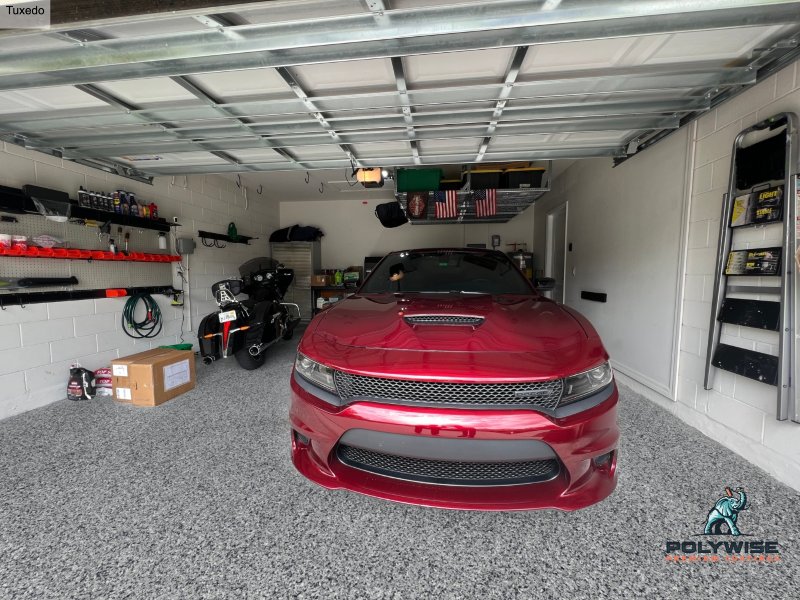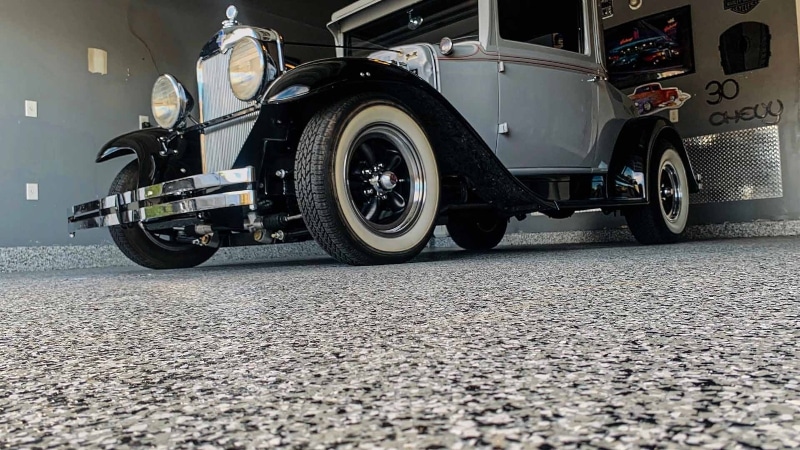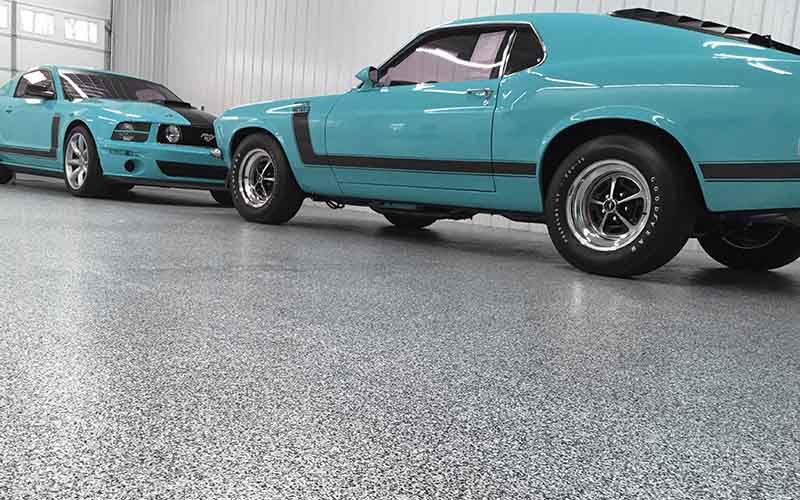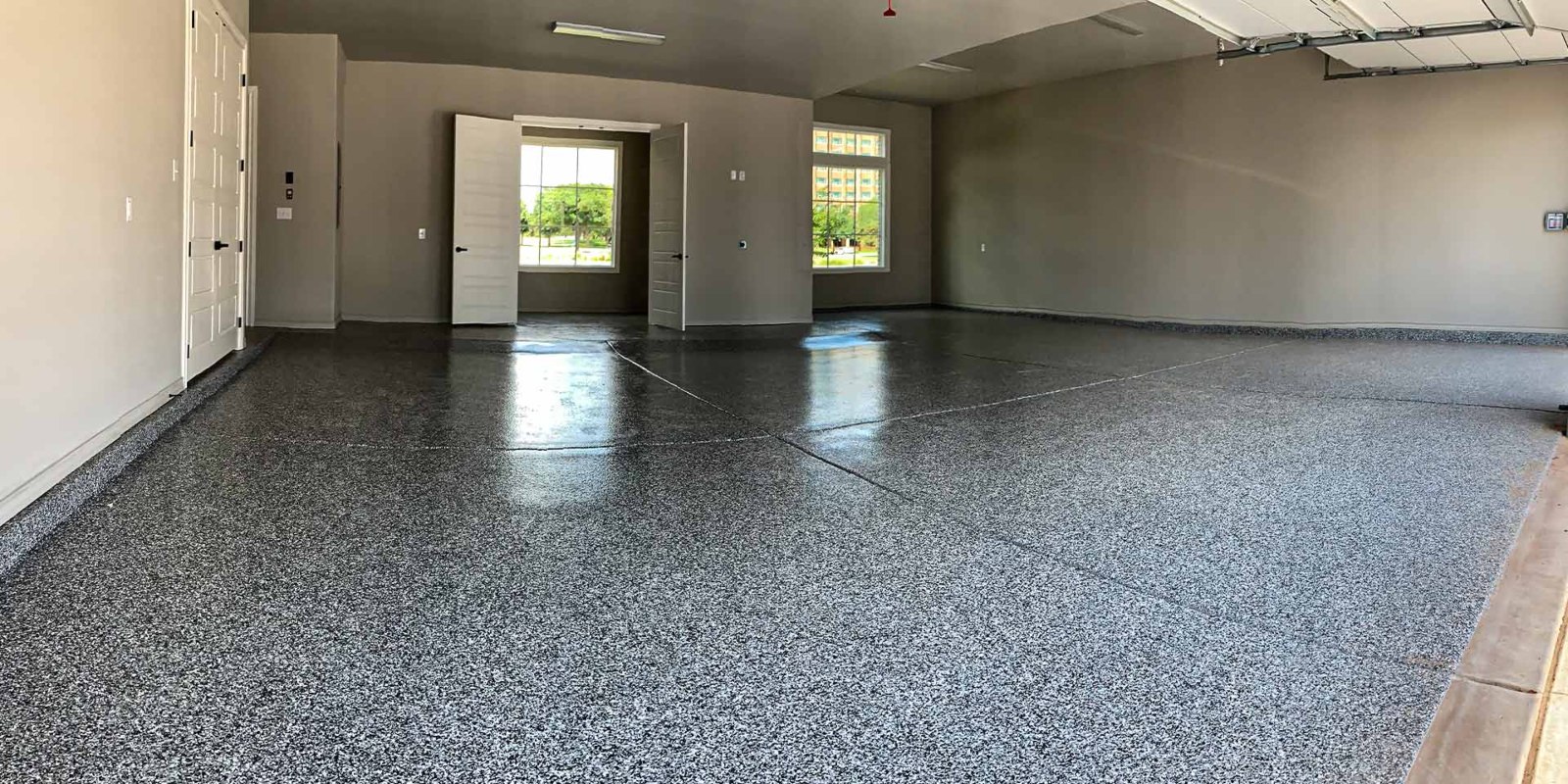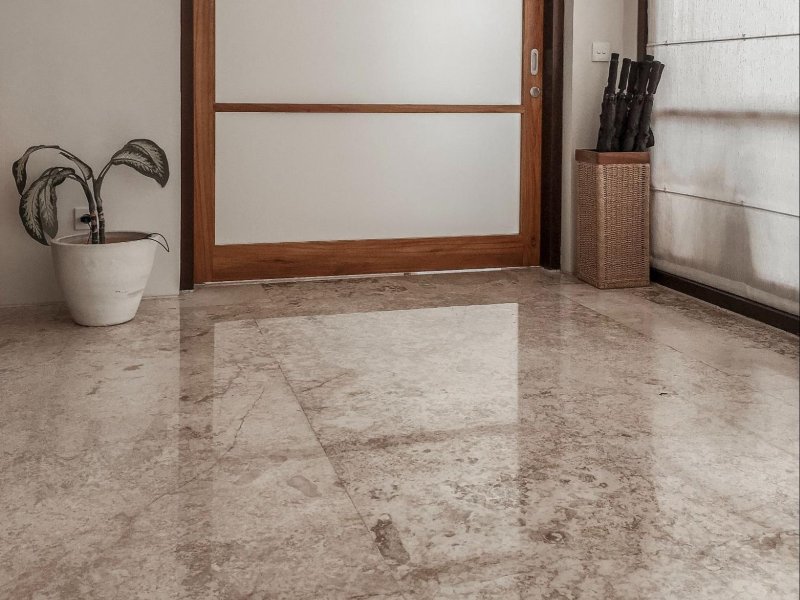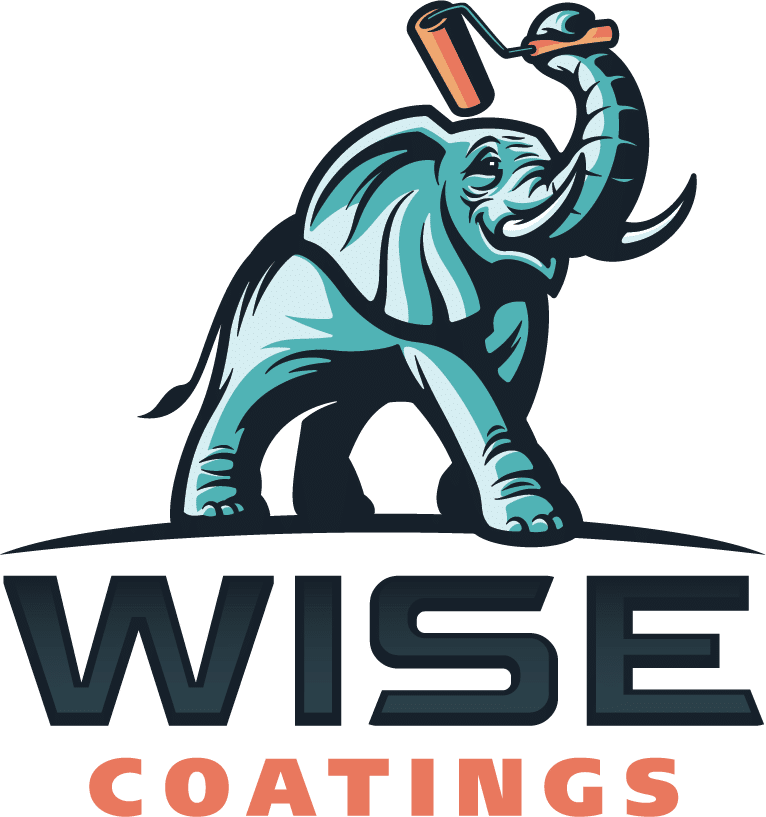Choosing the Best Concrete Coating for Your Project – Pros and Cons of Each Option
When planning a project involving concrete, one of the most important decisions you’ll make is which type of coating to use. With so many varieties on the market, it can be overwhelming trying to determine which is the best concrete coating for your job’s specific needs and requirements. But don’t fret – with this blog post we’ll provide an overview of all the major types of coatings available, giving insights into their pros and cons so that you can make an informed choice. By exploring each option in-depth, we’ll help ensure that your project turns out just as well as you’d hoped – no matter how challenging or complicated it may seem!
Understanding the Basics of Concrete Coatings
A concrete coating is a layer of material applied to concrete surfaces for various purposes which often include protection or aesthetic improvement. It serves as a barrier, safeguarding the concrete from potential damage caused by weather conditions, traffic, or chemicals. Coatings come in a wide variety of options, each with their unique properties, enabling them to perform under different circumstances and meet divergent project needs.
Using coatings on concrete projects is essential because concrete, while incredibly durable and versatile, can be susceptible to damage over time. Coatings can help to prolong the life of a concrete structure by protecting it against wear and tear, corrosion, and other forms of degradation. Moreover, coatings can also enhance the visual appeal of concrete surfaces, offering an array of colors and finishes that can be matched with the surroundings or used to create striking visual effects. Therefore, from practical protection to aesthetic enhancement, using coatings on concrete projects ensures longevity and adds value to your project.

Exploring the Different Types of Coatings Available
Let’s delve into the various types of concrete coatings available in the market:
- Epoxy Coatings: Epoxy-based coatings are one of the most common types of concrete coatings. They are highly durable and offer excellent protection against chemical and physical damage. However, they can be quite sensitive to UV exposure and may yellow over time.
- Urethane Coatings: Urethane coatings are known for their resistance to abrasion and high-traffic wear. While they provide robust protection, they require a perfectly prepared surface for application, which can be labor-intensive.
- Polyurea Coatings: Polyurea coatings set rapidly and are extremely resistant to chemicals, chipping, and abrasion. Their fast-setting nature can be advantageous but also requires quick and efficient application.
- Acrylic Coatings: Acrylic coatings are UV-resistant and maintain their color well over time. They dry quickly and are usually less expensive than other options. However, they offer less durability and protection compared to epoxies, urethanes, or polyureas.
Each type of coating has its own set of advantages and drawbacks. Therefore, the choice of coating should align with the project’s specific needs, budget, and long-term maintenance considerations.
Pros & Cons of Each Option
- Epoxy Coatings:
- Pros: Epoxy coatings are lauded for their impressive durability and excellent chemical resistance, making them ideal for industrial and commercial settings. Their high-gloss finish can enhance the aesthetic appeal of the concrete surface, providing a polished, professional look.
- Cons: Despite their durability, epoxy coatings are susceptible to UV exposure, causing them to yellow or chalk over time. They also require a well-prepared, pristine surface for effective application, which can increase labor costs.
- Urethane Coatings:
- Pros: Known for their robust abrasion resistance, urethane coatings are extremely durable; hence, they are suitable for high-traffic areas. They provide excellent color stability, retaining their aesthetic appeal over time.
- Cons: These coatings require a perfectly prepared surface for application, making the process quite labor-intensive. They may also be on the pricier side compared to other options.
- Polyurea Coatings:
- Pros: Polyurea coatings set rapidly, offering an advantage in projects requiring quick turnaround times. They also boast extreme resistance to chemicals, chipping, and abrasion, ensuring long-term durability.
- Cons: Due to their fast-setting nature, polyurea coatings require quick and efficient application, which might not be feasible in all project scenarios.
- Acrylic Coatings:
- Pros: Acrylic coatings stand out due to their excellent UV resistance, helping to maintain color over time. They dry quickly, reducing project timelines, and are usually less expensive than other coating options.
- Cons: Acrylic coatings, while affordable, may offer less durability and protection than epoxy, urethane, or polyurea options, which might lead to higher long-term maintenance costs.
Ultimately, the choice of concrete coating will depend on balancing these factors for your specific project needs.
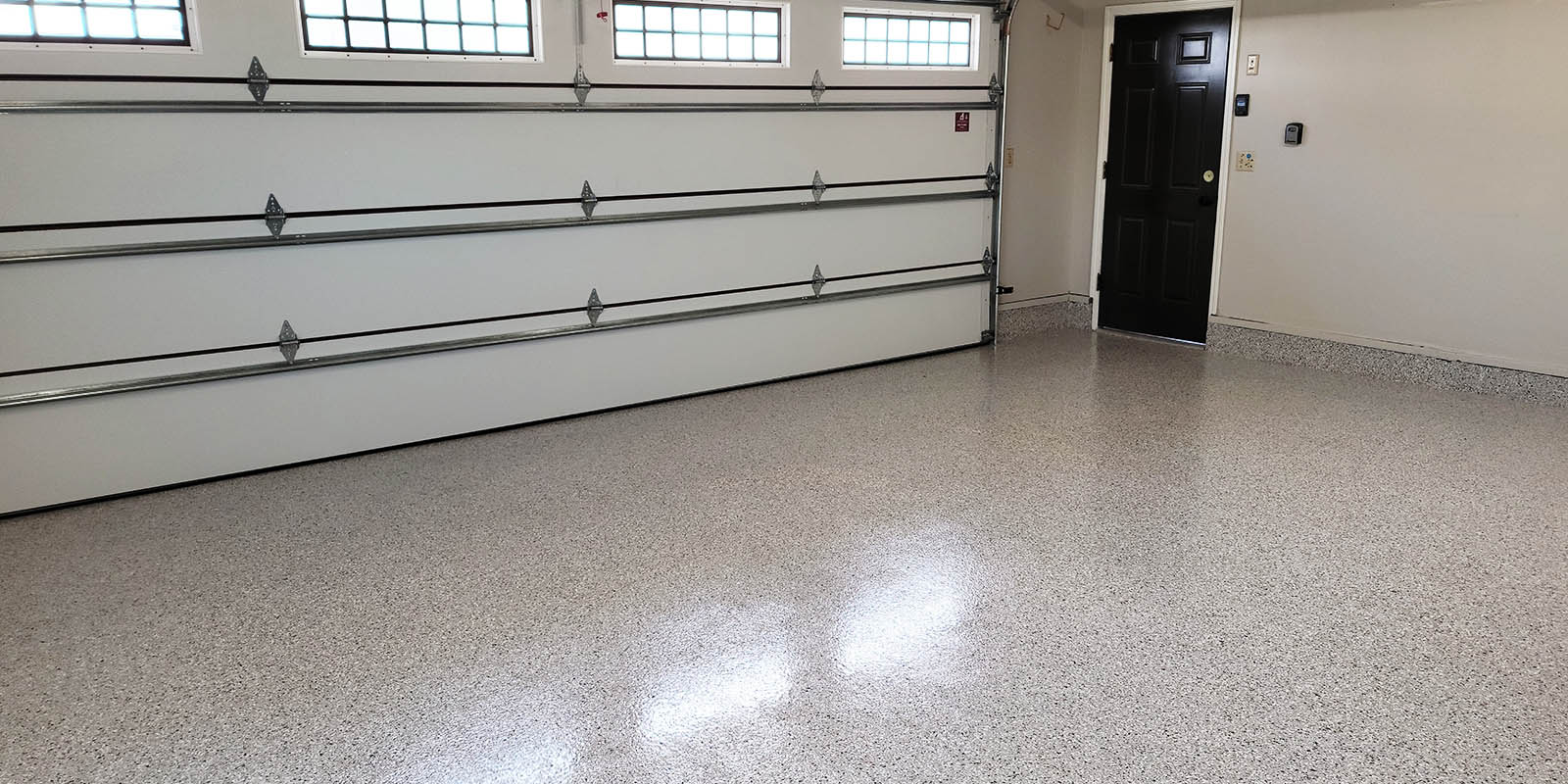
Choosing the Right Coating for Your Project
When choosing a coating for your concrete project, a few key factors should be considered to ensure the best fit:
- Understand the Project Requirements: The first step is to clearly comprehend the specific needs of your project. This includes understanding the expected traffic and wear, exposure to chemicals or UV light, and aesthetic expectations.
- Evaluate the Durability Needs: Consider the durability needs of your project. If your concrete is going to be in a high-traffic area or exposed to harsh chemicals, opt for a highly durable coating like epoxy, urethane, or polyurea.
- Consider Aesthetic Preferences: If visual appeal is a primary concern, look for coatings that offer a range of finishes and colors. Acrylic coatings, for example, are known for their UV resistance and color retention.
- Assess the Budget: Be mindful of your budget when choosing a coating. While some coatings may be more affordable upfront, they may require more maintenance in the long run, impacting the overall costs.
- Consult with Professionals: When in doubt, consult with a professional. They can provide insight into the best coatings for your particular project depending on its unique needs.
Remember, the right coating not only protects your concrete but also enhances its aesthetic value, optimizing the return on your investment.
DIY Versus Professional Installation – Pros & Cons of Both Approaches
DIY Installation:
- Pros: Choosing the do-it-yourself route can be advantageous from a cost perspective, as you will not have to pay for professional labor. It can also provide a sense of satisfaction and personal achievement.
- Cons: However, DIY installation may not yield the best results if you are inexperienced or lack the necessary tools. It can be time-consuming and the quality may be compromised, potentially leading to increased maintenance costs down the line.
Professional Installation:
- Pros: Opting for professional installation ensures a high-quality finish, as professionals have the necessary experience, skills, and tools to do the job right. They can efficiently handle any challenges that arise, saving you time and stress.
- Cons: On the downside, professional installation can be more expensive upfront than a DIY approach due to labor costs. However, this initial investment can often lead to cost savings in the long run due to reduced maintenance.
Choosing between DIY and professional installation ultimately depends on your individual skills, time availability, budget, and the specific requirements of your project. Weighing the pros and cons of each approach can help you make an informed decision that suits your needs best.
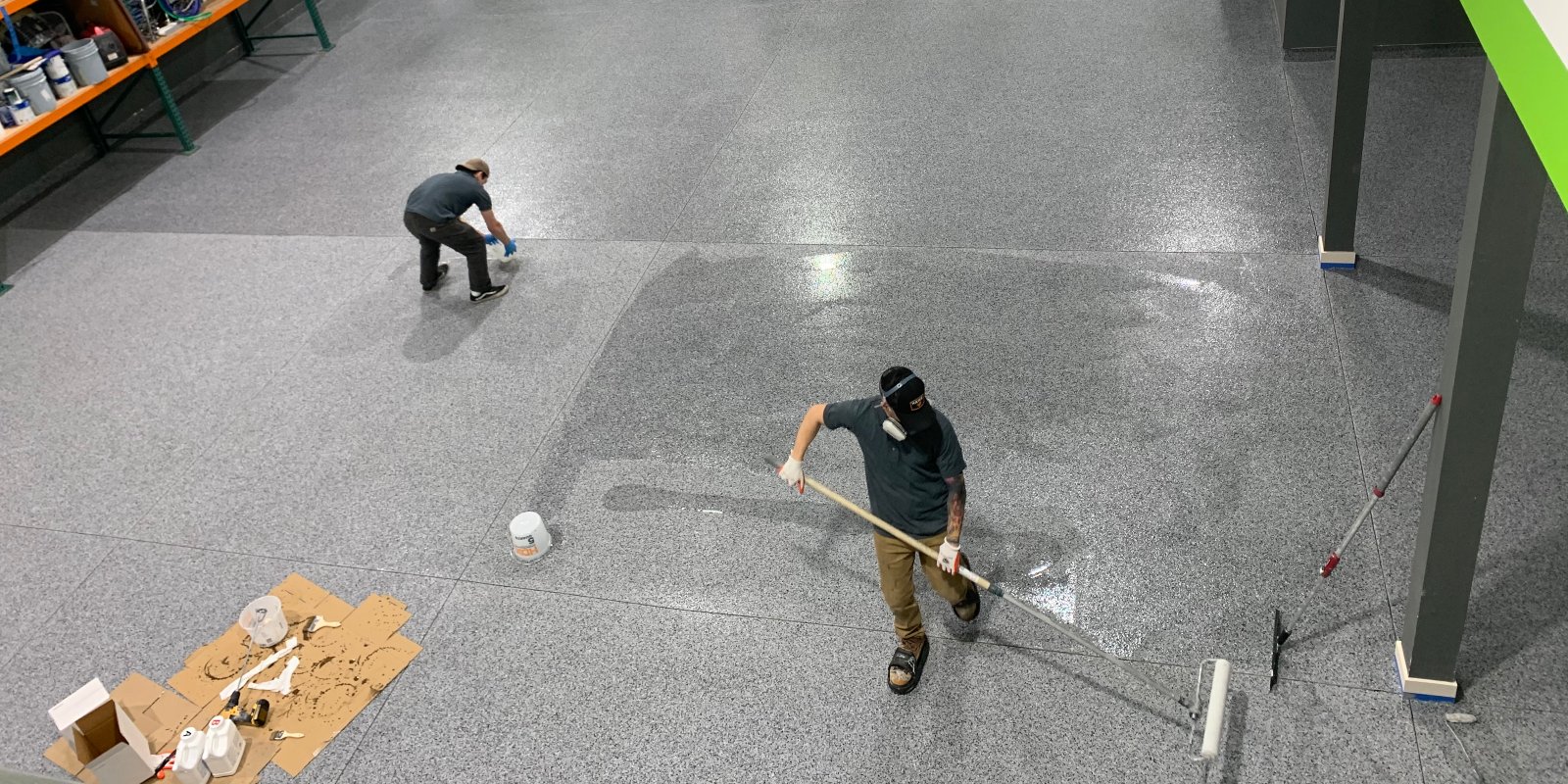
Finishing Touches – Helpful Tips for Ensuring Optimal Results with Your Project’s Final Coating
Ensuring optimal results with your project’s final coating involves meticulous attention to detail and adherence to best practices. Here are some helpful tips:
- Properly Prepare the Surface: Before applying your chosen coating, thoroughly clean and prep the concrete. This includes removing any existing coatings or sealers, repairing cracks or damages, and ensuring the surface is free from oil, dirt, or other contaminants.
- Apply Primer if Necessary: Depending on the type of coating, a primer may be necessary to promote proper adhesion and improve the longevity of the coating.
- Follow Manufacturer’s Instructions: Adhere to the product’s instructions for optimal results. This includes aspects like mixing ratios, application methods, drying times, and the recommended number of coats.
- Apply Coating Evenly: To achieve a uniform look, apply the coating evenly. This may involve using specific tools or techniques.
- Allow Adequate Curing Time: Do not rush the curing process. Allow the coating sufficient time to cure fully before allowing traffic on the surface. The curing time can vary based on the type of coating and environmental conditions.
- Regular Maintenance: Regular cleaning and epoxy floor maintenance can help preserve the coating and extend its lifespan. Again, adhere to the manufacturer’s guidelines for care and maintenance.
Remember, a well-applied, well-maintained coating can greatly enhance the performance and aesthetics of your concrete project.
Wise Coatings
https://www.google.com/maps?cid=2589512530409833629
(503) 855-6338
https://wisecoatings.com/portland/




